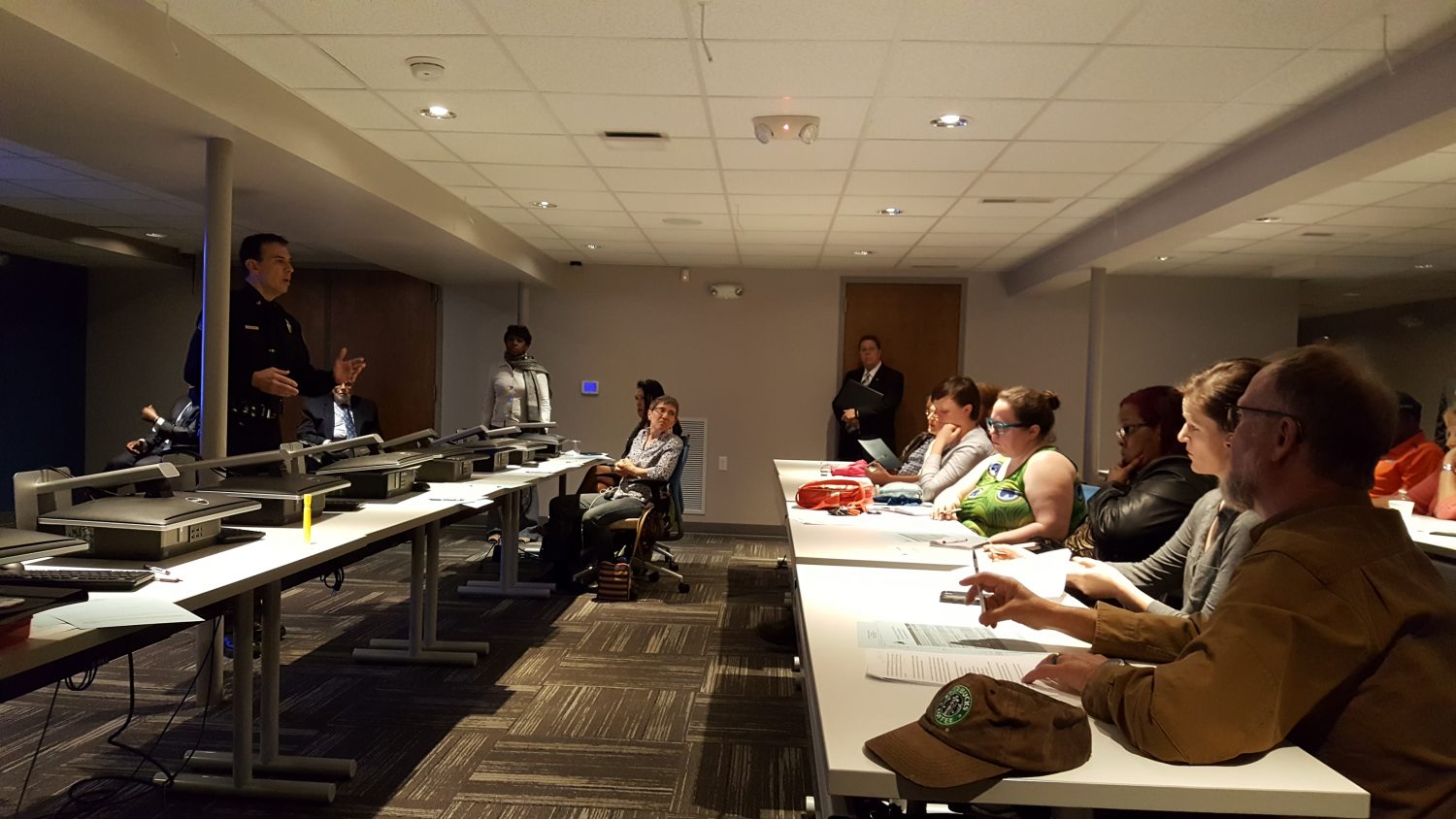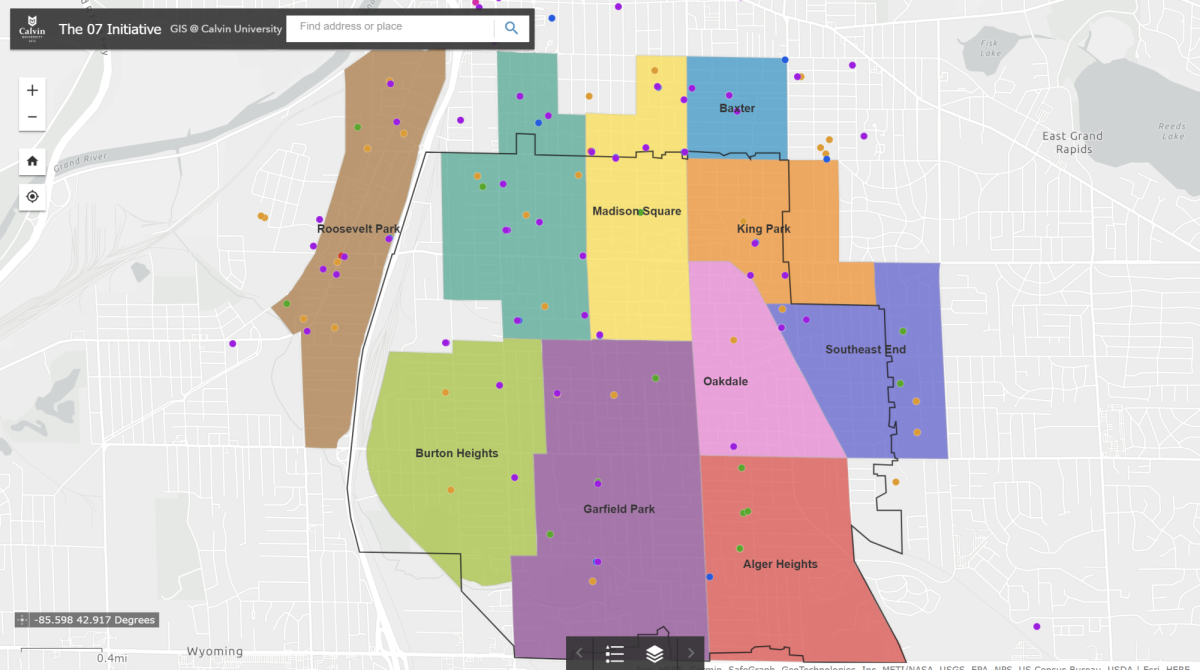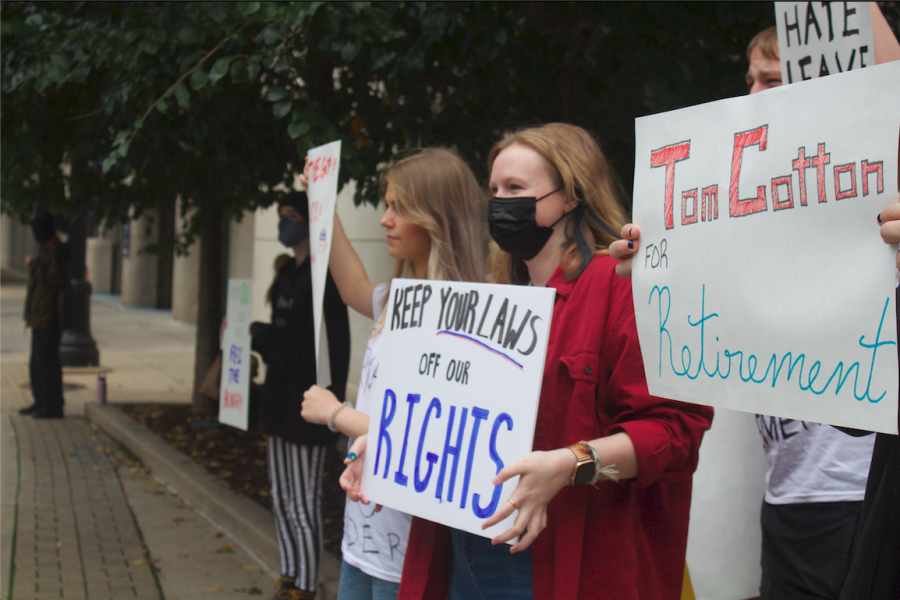The Michigan First Credit Union on Breton Rd., across the street from D&W where many Calvin students shop, is a nondescript building, appearing from the outside like a typical bank.
On Wednesday afternoon, however, the credit union hosted one of five town halls which took place around Grand Rapids on Tuesday, April 18 and Wednesday, April 19 to discuss the results of a study of racial profiling by the Grand Rapids Police Department (GRPD).
The results of this study, conducted by Lamberth Consulting, a national leader in consulting for police departments on racial profiling, showed that black motorists in Grand Rapids are 1.85 times more likely to be stopped than expected based on the racial and ethnic composition of the traffic in Grand Rapids.
Additionally, the study found that Hispanic motorists were on average 1.3 times more likely to be stopped than non-Hispanic motorists at the 20 locations studied.
The odds ratio for black drivers, at 1.85, falls into one of the warning categories, indicating there may be an implicit bias problem in traffic stops.
Dr. John Lamberth, the founder and CEO of Lamberth consulting, explained the framework they used to determine problematic odds ratios at the town hall.
The odds ratio is a statistical tool used in many fields for identifying the likelihood of a certain event happening based on average data, said Lambert. An odds ratio of 1 indicates that an event happens at the same odds expected by the composition of the whole, while an odds ratio of 1-1.5 is not statistically significant to warn of a problem. An odds ratio of 1.5-2.0, as in the case of black motorists in Grand Rapids, indicates that a problem may be occurring, while an odds ratio above 2.0 would be a clear indicator of a serious problem.
The study was conducted at 20 intersections around the city over the past year. The study compared the composition of motorists based on race and gender at each intersection with the record of traffic stops at each of these intersections.
Lamberth brought in their own experts to study the composition of motorists at each of these 20 intersections over a 3-month period from August to November 2016. Each intersection was monitored on at least eight different days and times over that period to assess the racial composition of the motorists, which were then compared to the GRPD stop data at each of these 20 different intersections.
City manager Greg Sundstrom delivered opening remarks before introducing the consultants and said that “This is a clear mandate to make change. It flies against the central tenets of American government that everyone is equal. Grand Rapids accepts all findings of the consultants and wants to confront the results head-on.”
The results of this study were released to the public on Tuesday, April 18, through an online press release on the city’s website, where the full results of the study can be found.
The town hall meetings were scheduled so quickly after the release of the results that some were concerned that residents did not have adequate time to assess the study before the meetings.
Sundstrom responded to these concerns, saying: “In the old days we might have sat on these results and tried to spin them. But we wanted to confront these results head-on.” He emphasized transparency with the public through this process.
Chief of police David Rahinsky fielded questions after the consultants gave their findings. One community member asked if the department would identify individual officers through this study. He responded that they did not want to be punitive, but want to train officers to recognize implicit bias.
Another questioner asked how officers in the GRPD have reacted to this study and other efforts to improve the bond with the community. At first Rahinksy answered this question by saying that his officers have “embraced” changes, but backed off from the word “embraced” as too strong.
He rephrased that his officers have recognized the importance of the issue of profiling but also emphasized that GRPD is perceived around the country to be on the cutting edge of incorporating new techniques and ideas into policing, especially for a department of its size. Rahinsky will be holding open office hours this Friday from 9 a.m. to 3 p.m. for any concerned community members.
Neil Carlson, director of the Center for Social Research at Calvin, pointed to James 2:13 for guidance on how Christians should respond to this issue: “Mercy triumphs over judgment.” Carlson warned against being eager to point the finger at either “left-wing academics who some blame for creating an issue where there is none, or police. Neither is productive.”
Instead, Carlson said that in response to results such as this, being merciful means listening to the stories of people of color.










